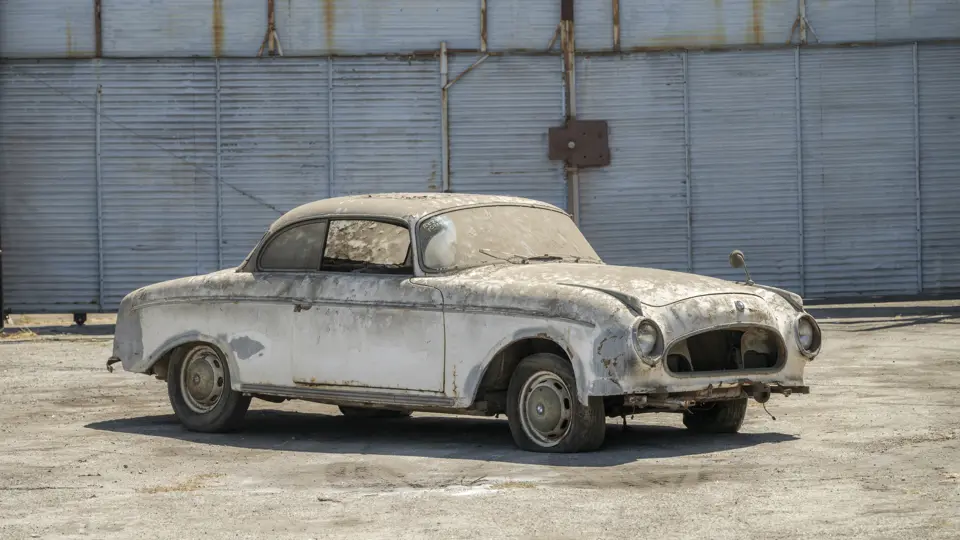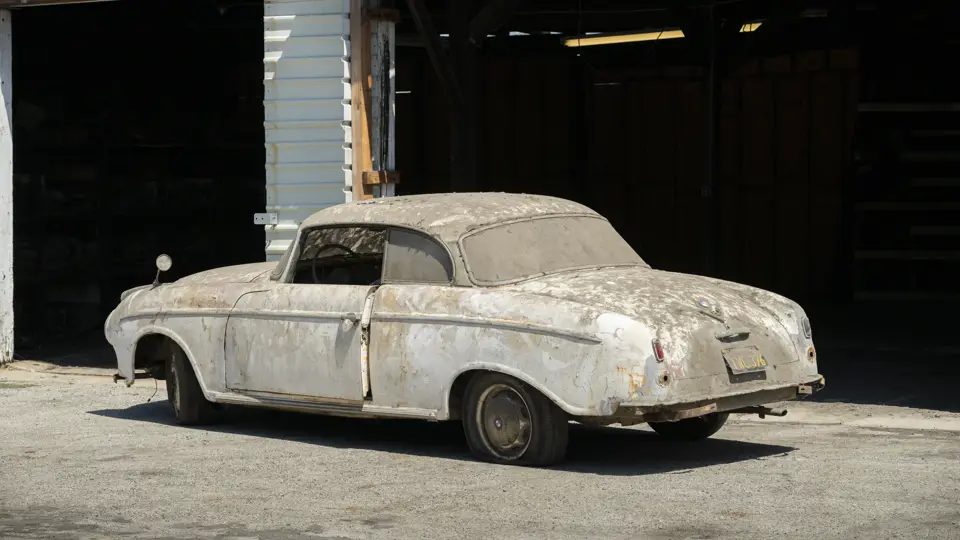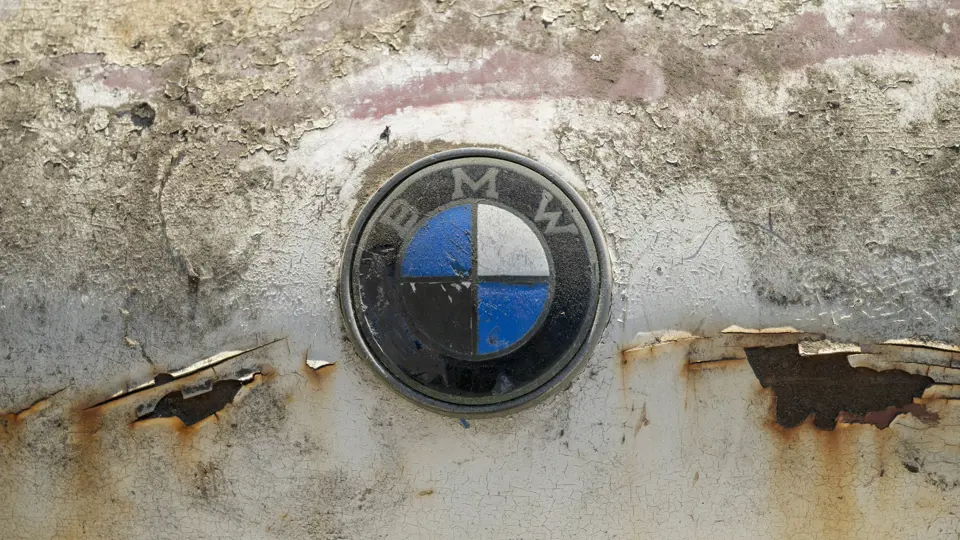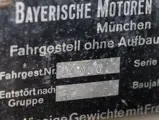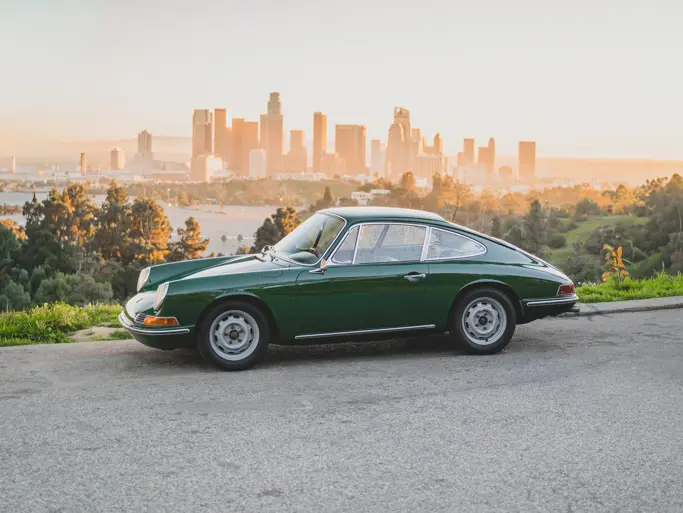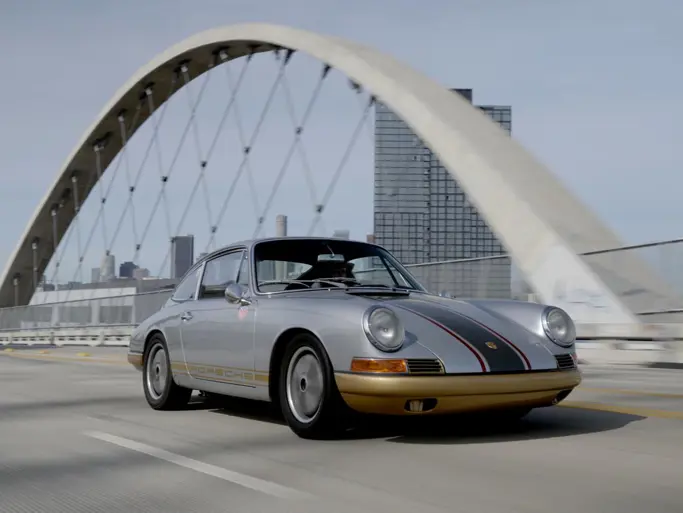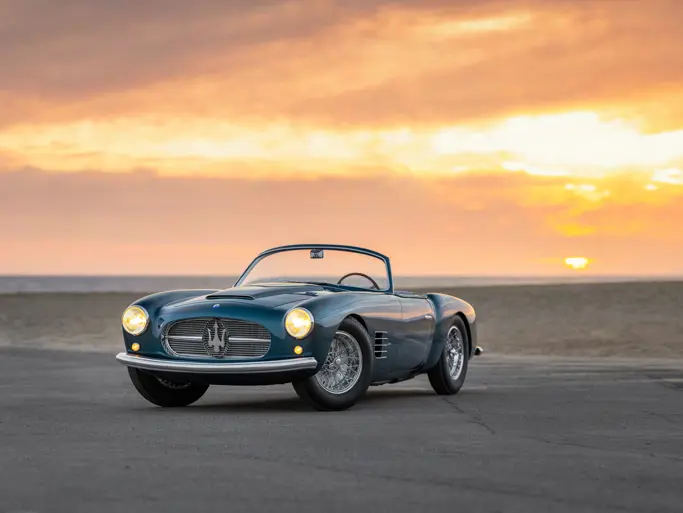
1956 BMW 502 'Marburg' Coupe by Autenrieth
{{lr.item.text}}
$58,800 USD | Sold
{{bidding.lot.reserveStatusFormatted}}
- The sole example of Autenrieth’s 502-based “Marburg” Coupe; a post-war, coachbuilt treasure of extremely unique appeal
- Featured in Henning Zaiss’ seminal book on the coachbuilder, Autenrieth: First Darmstadt Bodyworks
- Powered by BMW’s 3.2-liter V-8 engine mated with a four-speed manual gearbox
- Finished in White over navy blue leather upholstery
- Accompanied by correspondence from marque expert Wolfgang Niefanger
While the BMW 501 could easily be enjoyed as a luxury cruiser, the six-cylinder engine found in earlier models did not have much to spare once the weight of the sumptuously appointed saloon car had been accounted for. The Munich marque then introduced the 502 at the 1954 Geneva Motor Show, using the same chassis and body as the 501 but with a grander interior and notably featuring a lightweight aluminum V-8 engine block displacing 2.6 liters.
While the factory-issued saloon body was the most popular style for the 502, a limited number of cabriolet and coupe versions were made by domestic coachbuilders including Baur, Beutler, and—rarest of all—Autenrieth of Darmstadt.
Founded by George Autenrieth in 1922, the company quickly became a preferred contractor for notable German automobile manufacturers, including Opel, Fulmina, and Ruhr. By the mid-1930s, Autenrieth had evolved into a prominent coachbuilder with several hundred employees and a reputation that was highly regarded across Continental Europe.
Post-war Autenrieth creations are distinguished by their use of vehicle canopies which used large windows, otherwise known as a “greenhouse” styling. Trim strips and radiator grilles were crafted from solid brass, soldered, and then chrome-plated. The interiors featured sumptuous Offenbach leather, and the elaborate paintwork, which could take weeks, included pioneering use of metallic paints.
Now offered from several decades of secluded slumber within the walls of Rudi Klein’s private collection is this one-off 1955 BMW 502 “Marburg” Coupe by Autenrieth.
As noted by Henning Zaiss’ seminal book on the coachbuilder, Autenrieth: First Darmstadt Bodyworks, and further elaborated upon by BMW marque expert Wolfgang Niefanger, chassis 59090 was originally delivered to Autohaus Essen during February 1956. This custom coachbuilt BMW was commissioned by a wealthy Autenrieth patron from Marburg—and was reported to have been suitably finished in a silver metallic exterior over navy blue leather upholstery.
A historic image on file clearly exhibits the car’s chrome-trimmed ovoid radiator grille, fender-mounted driver’s side mirror, simple chrome bumpers and side molding, as well as fared-in fender and sill moldings which nicely grounds the design’s rather light and airy profile featured above the beltline. At some point early in its life, the car was registered in Ahaus as AH71 3016.
Despite its uniqueness, the Marburg’s distinctive design still clearly takes glancing inspiration from several earlier post-war creations of Italian origin, and the roof treatment closely follows the type seen in Ghia and Pinin Farina’s published designs for Ferrari between 1950 and 1955. But perhaps most interesting about the Autenrieth Marburg’s styling is the fact that it has applied chrome “trim fins” on its front fenders, whereas almost every contemporaneous American and Italian model utilized this styling feature on their rear fenders.
Following its importation to the United States, the 502 Marburg Coupe was purchased by Rudi Klein, at which time it wore the California registration LWC396 and indicated some 75,000 kilometers (~46,600 miles) on its odometer.
Ripe for restoration and subsequent exhibition at the world’s finest concours, the BMW 502 Marburg Coupe by Autenrieth is a fine and significant example of post-war German coachwork which deserves to be brought back to its former glory.


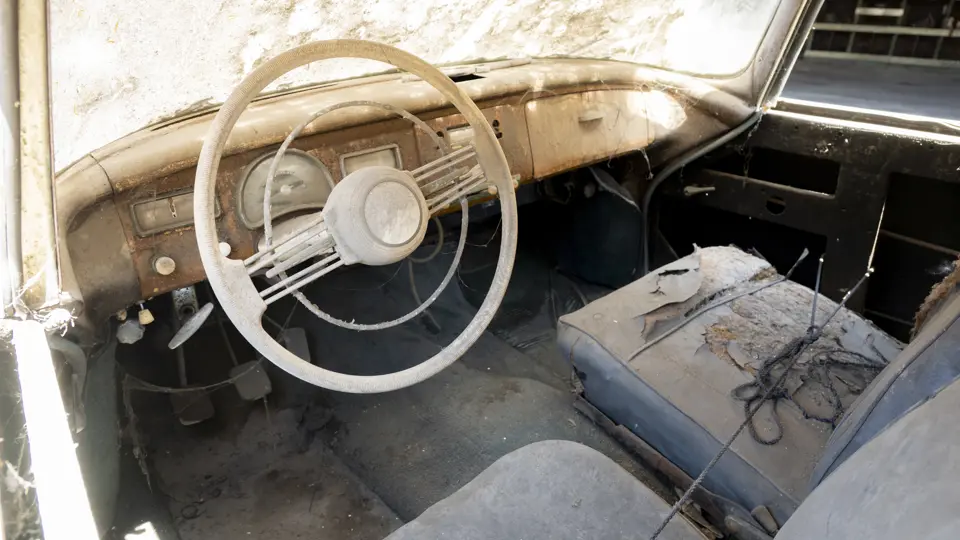

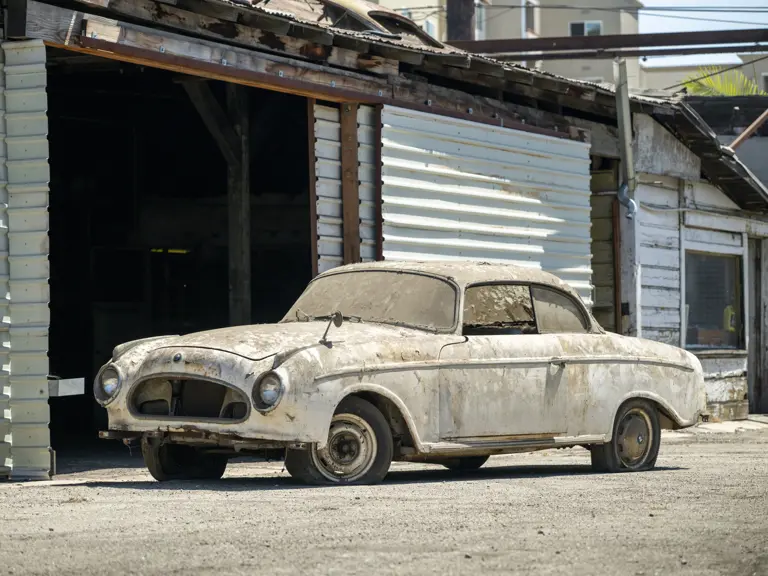
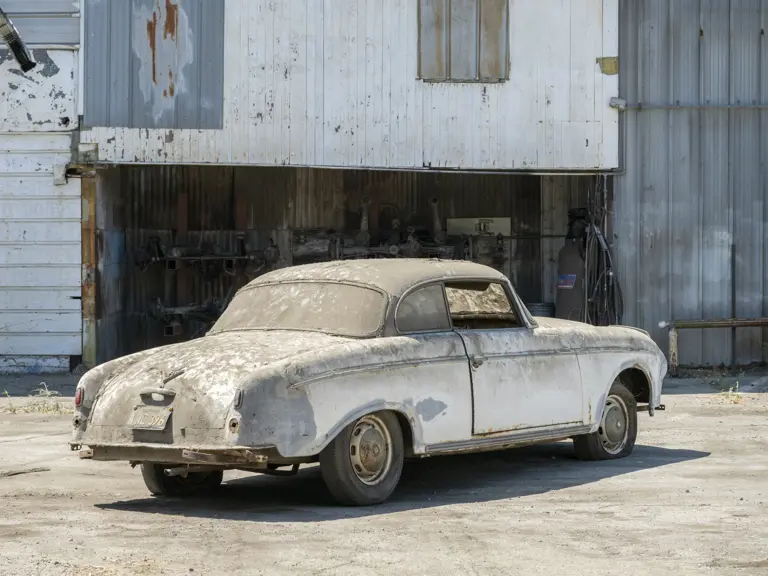
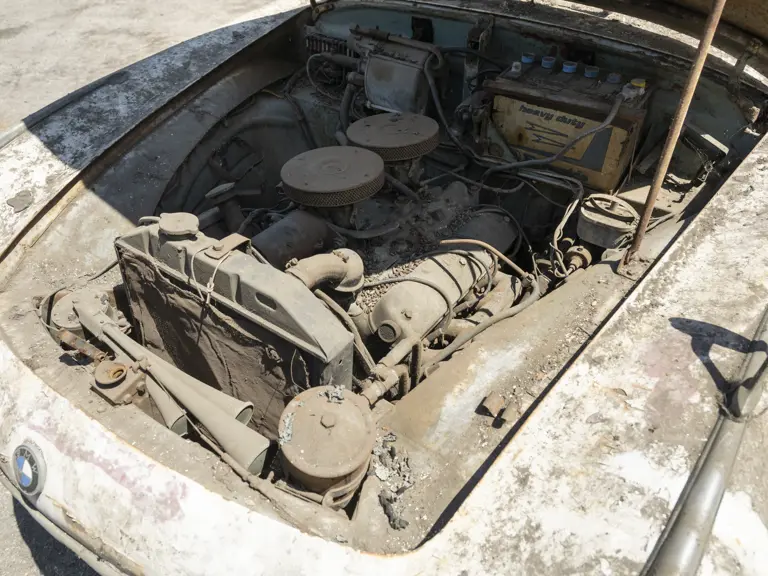
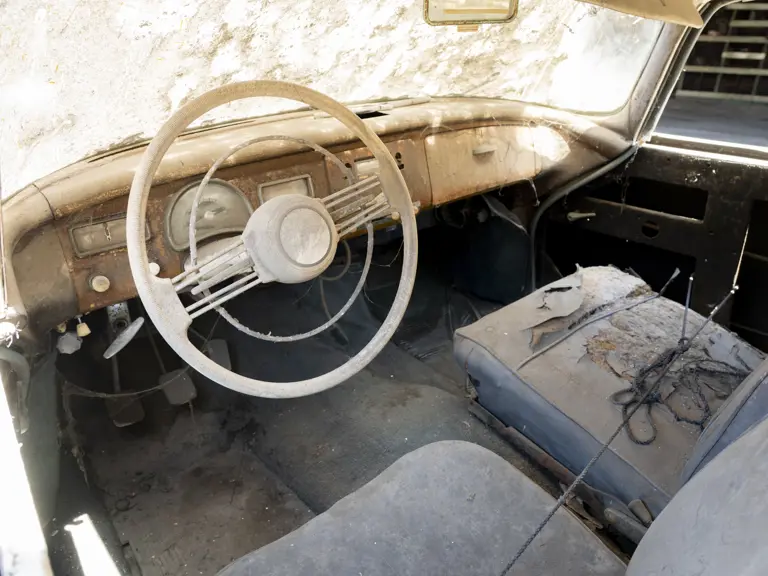
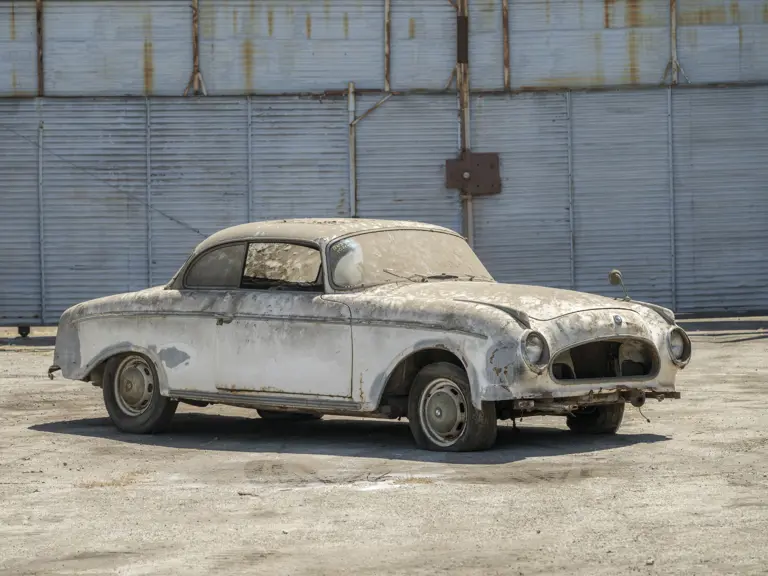
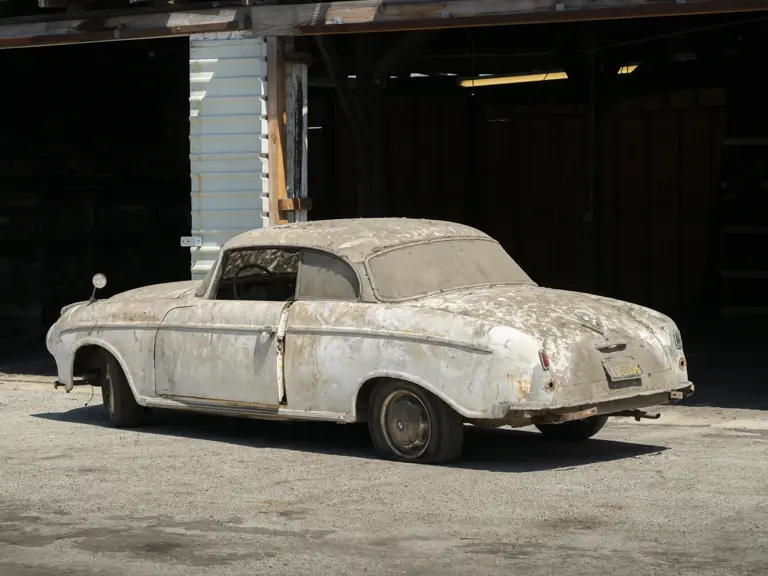
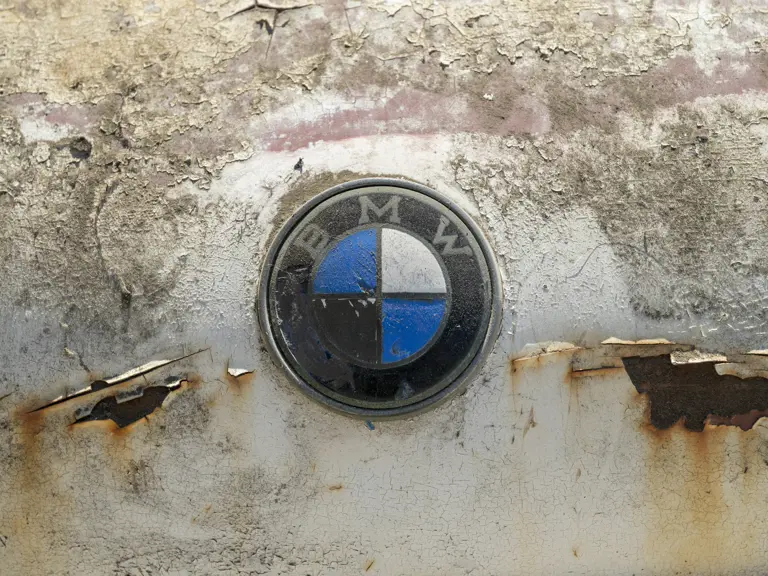
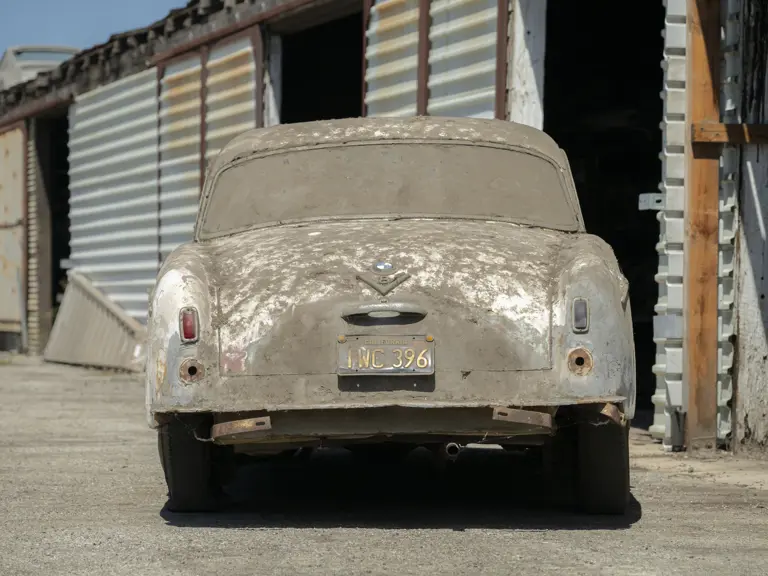
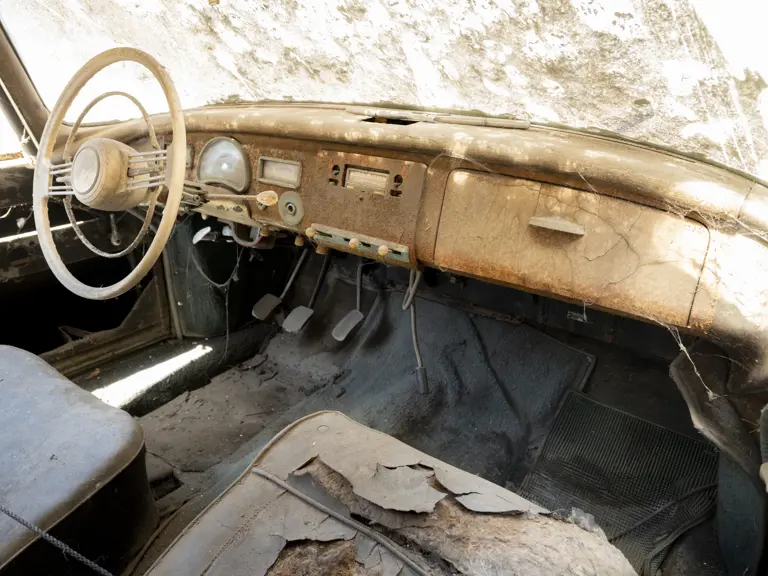
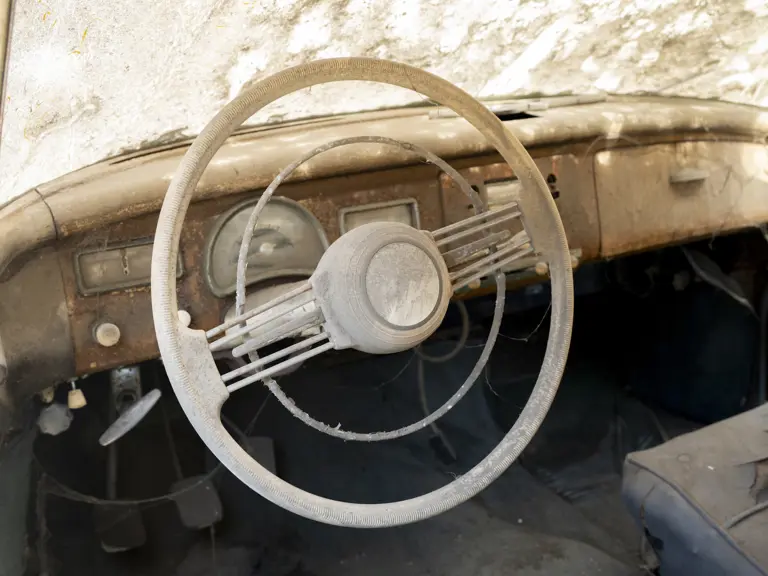
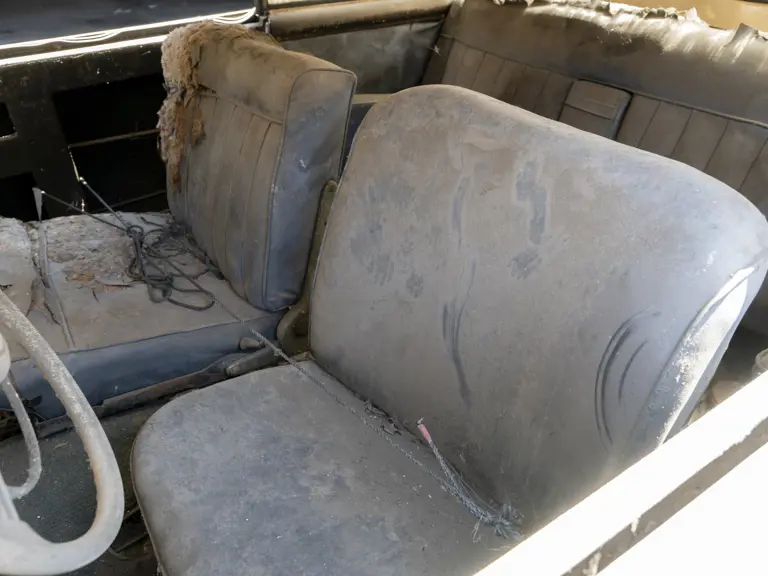
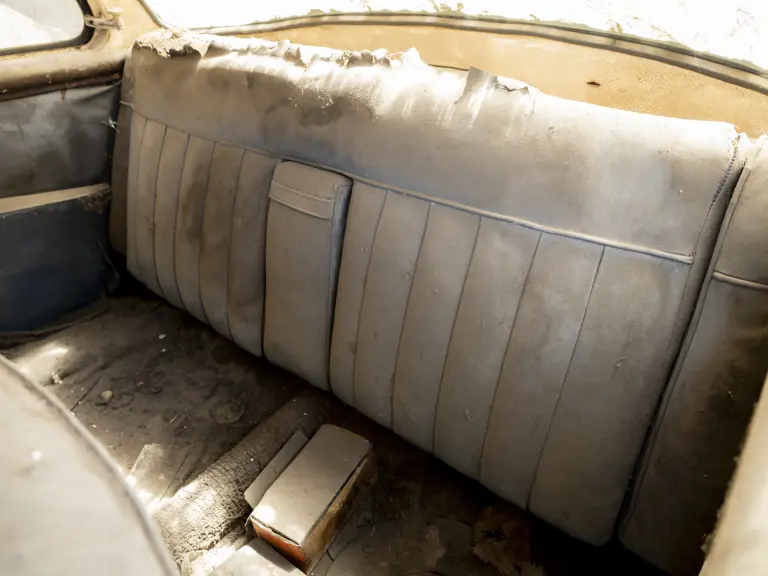
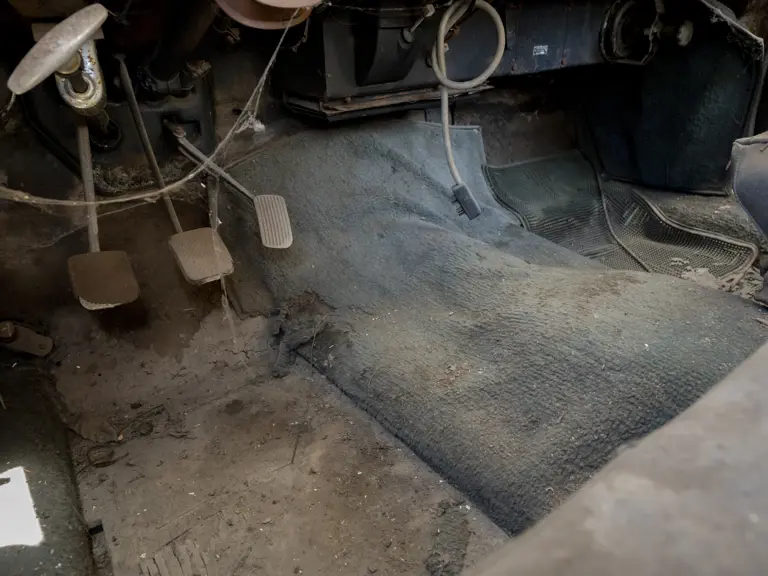
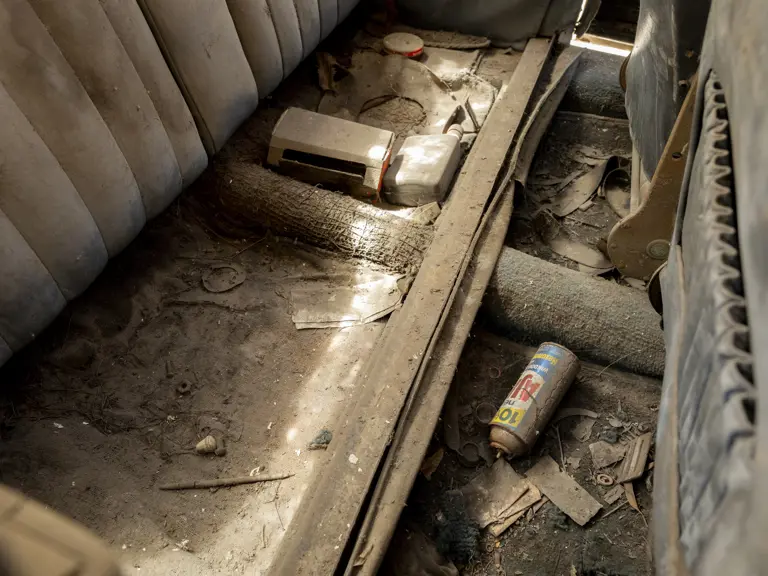
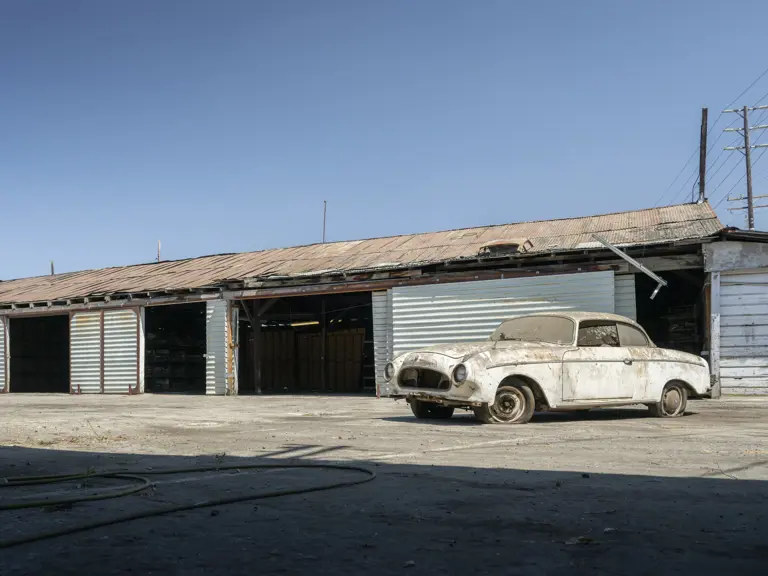
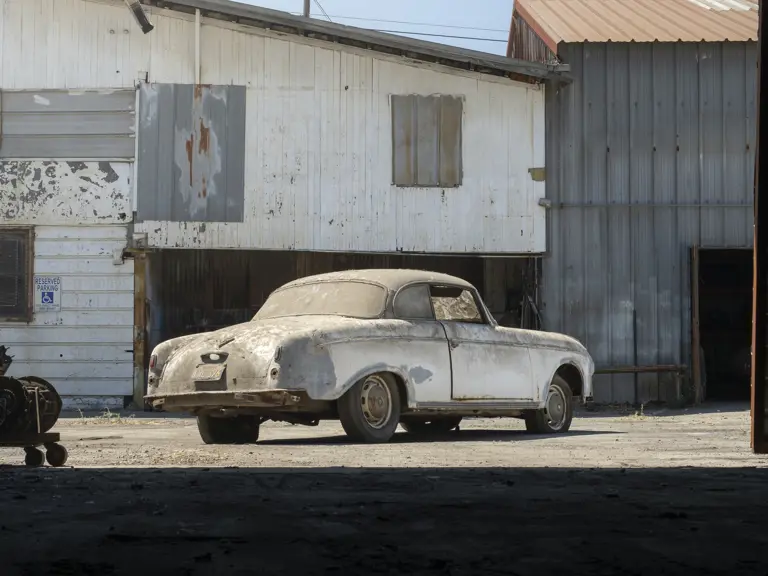
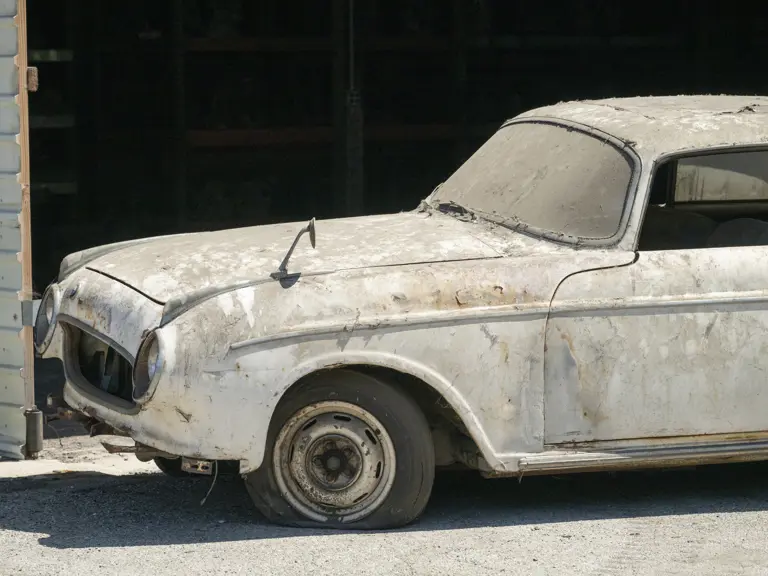
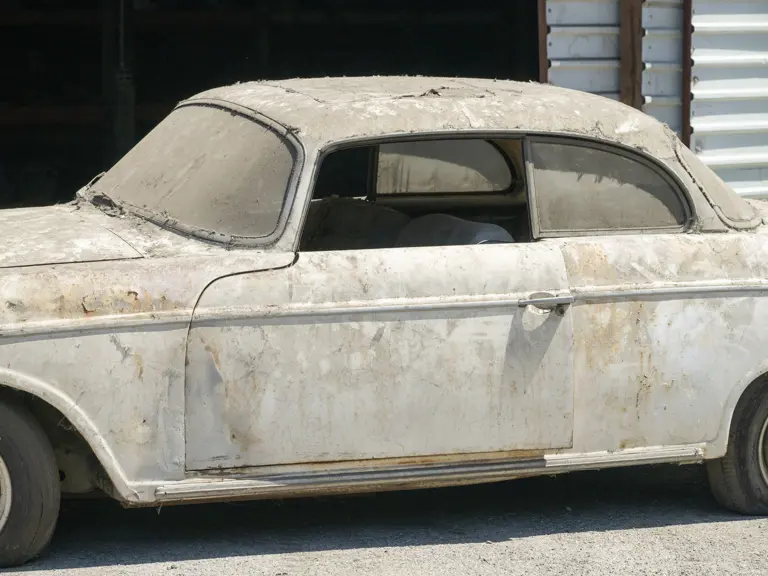
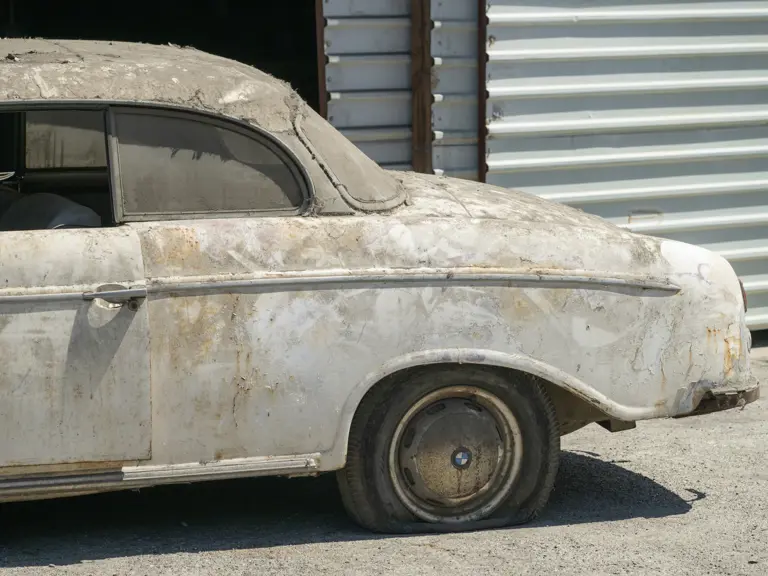
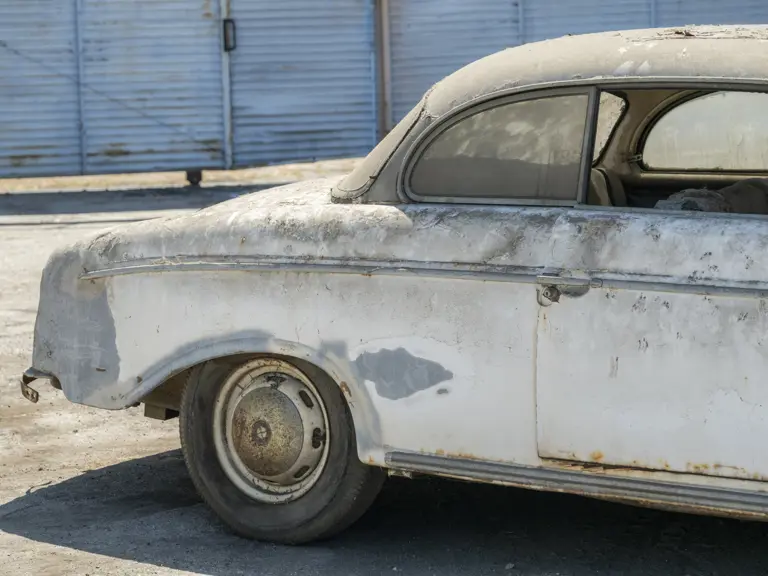
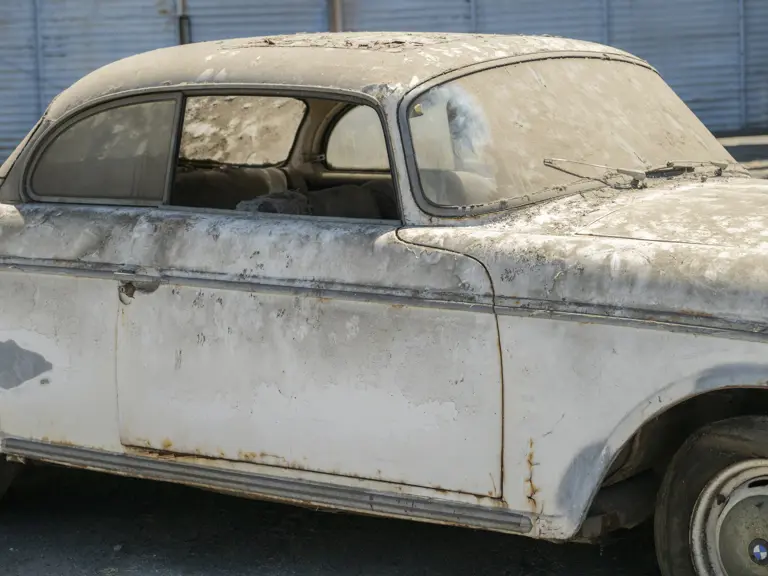
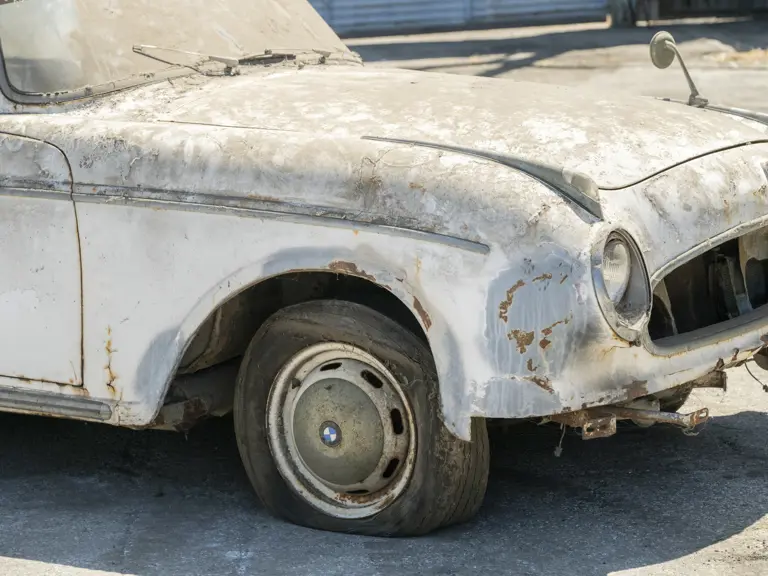
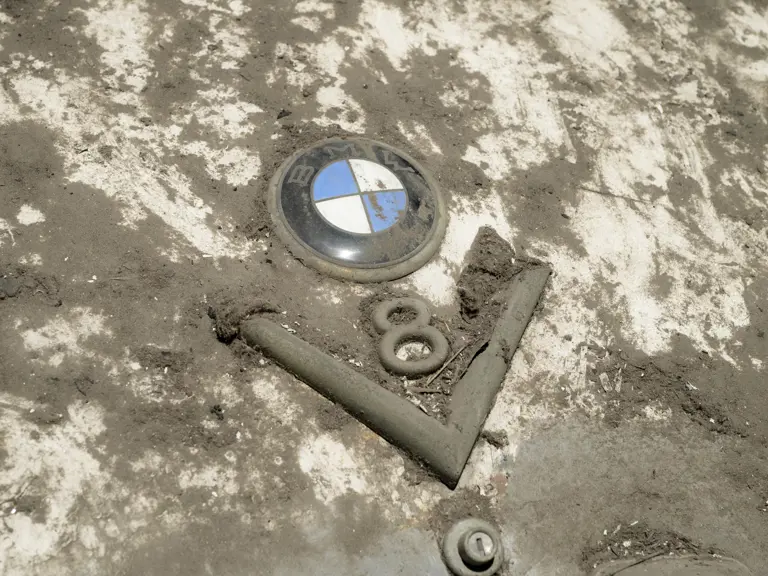
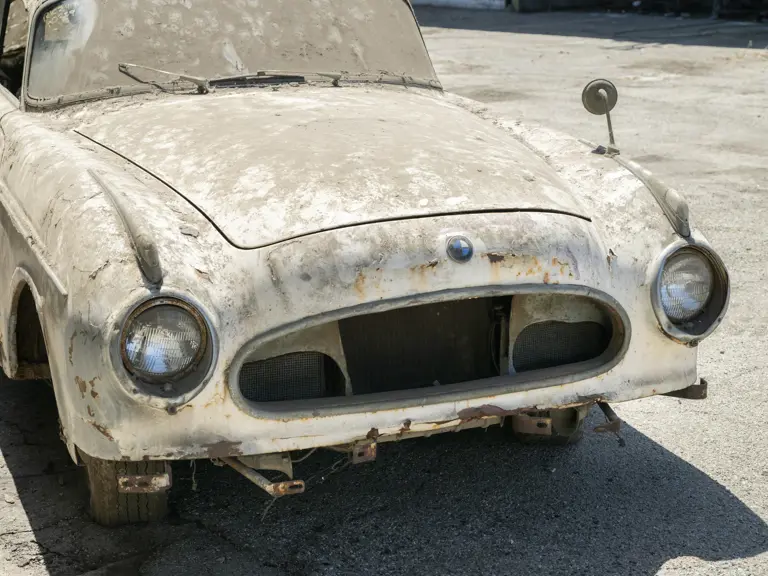
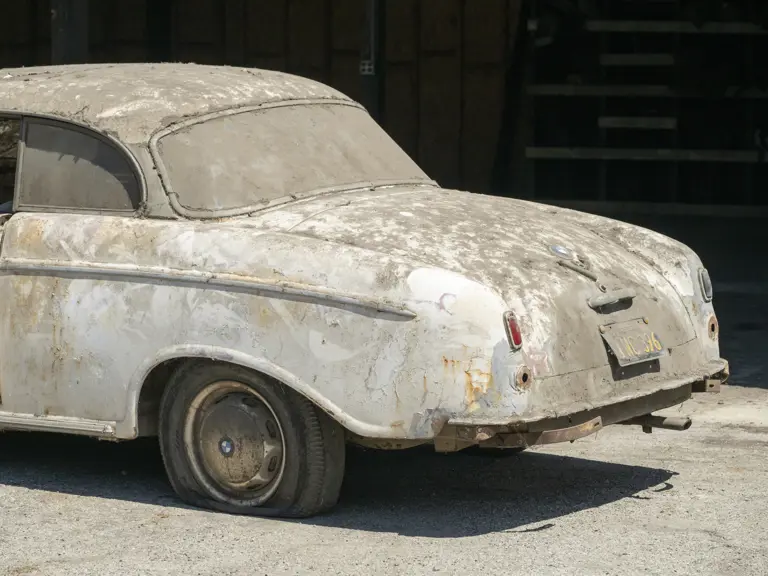
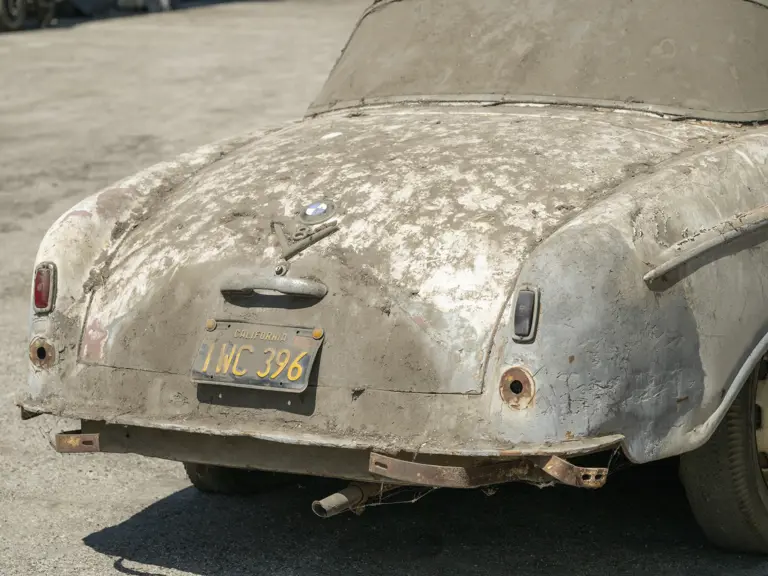
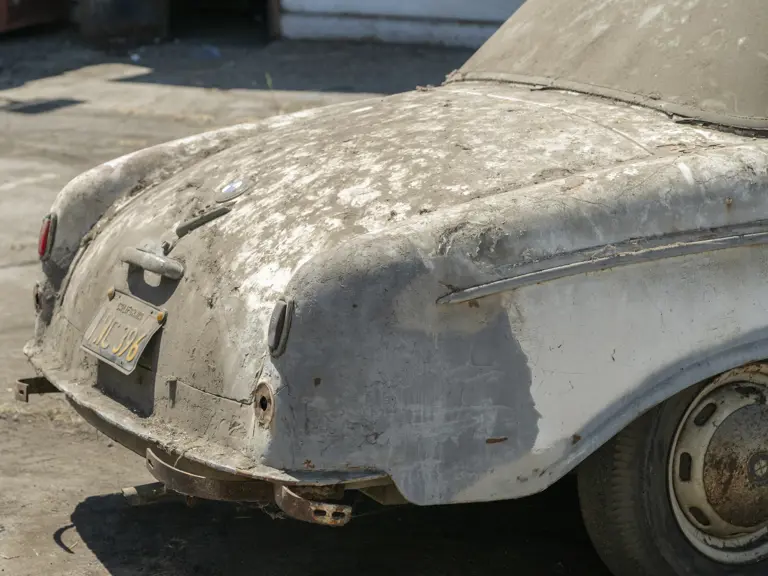
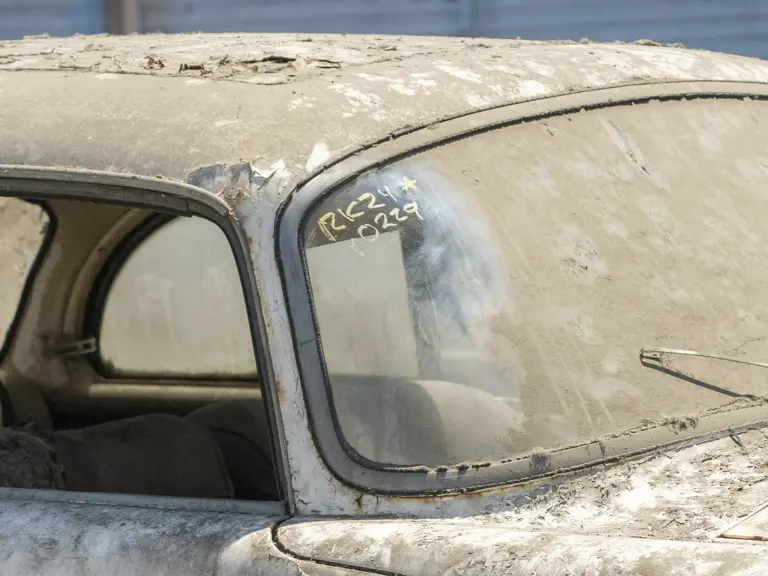
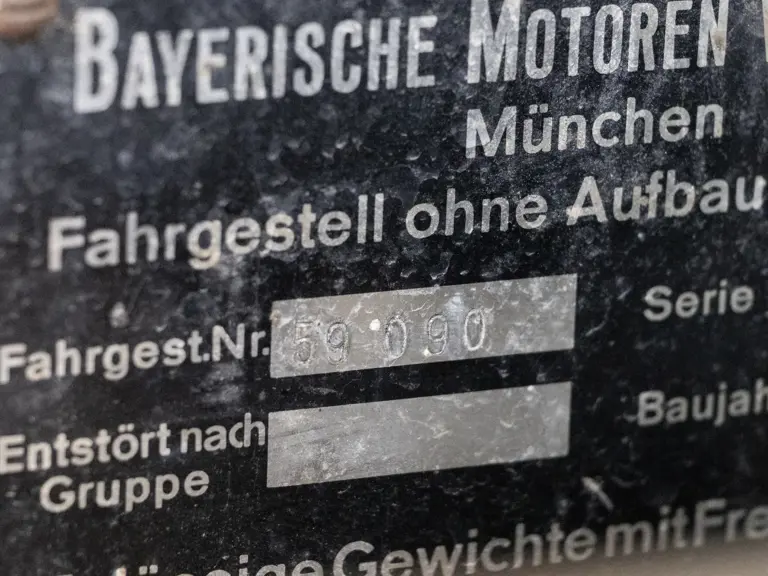
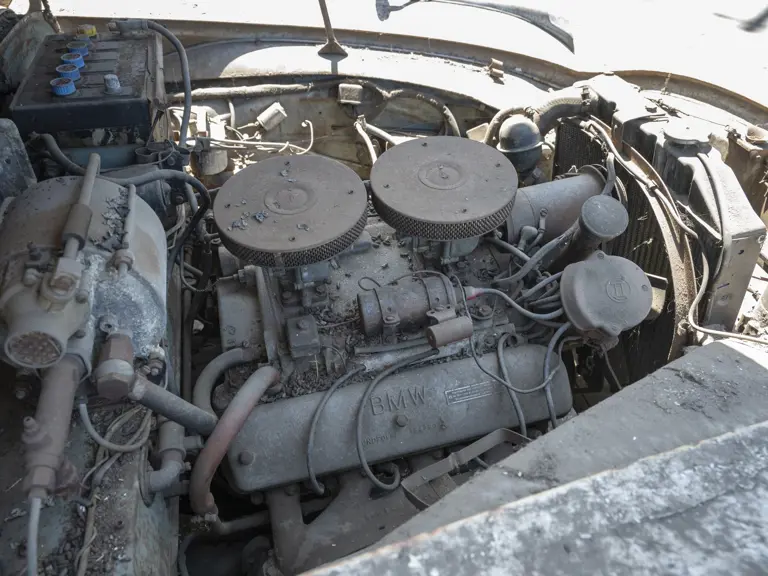
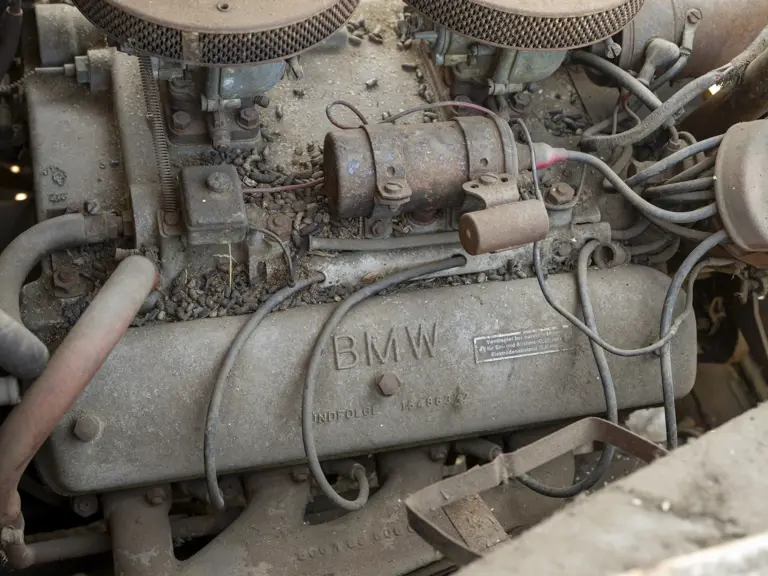
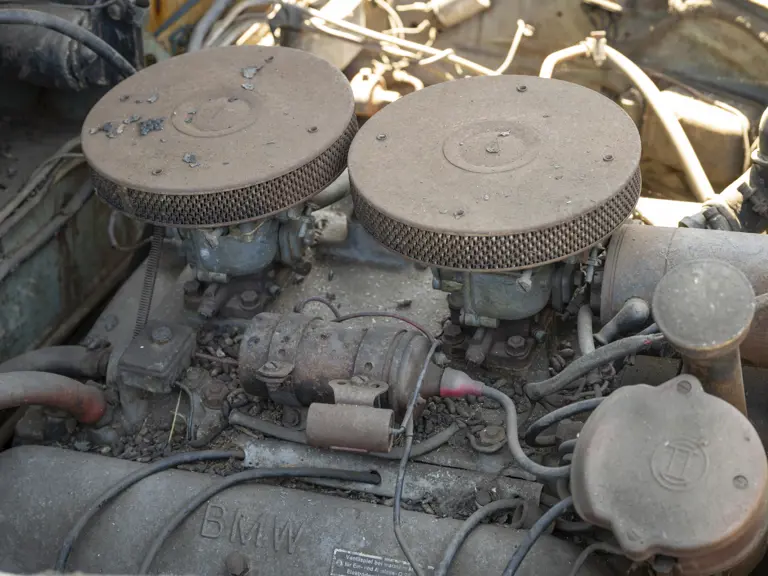
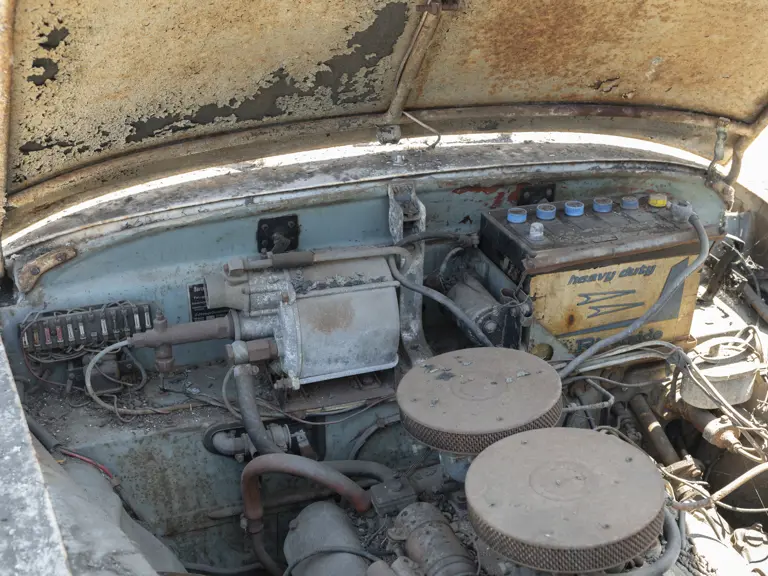
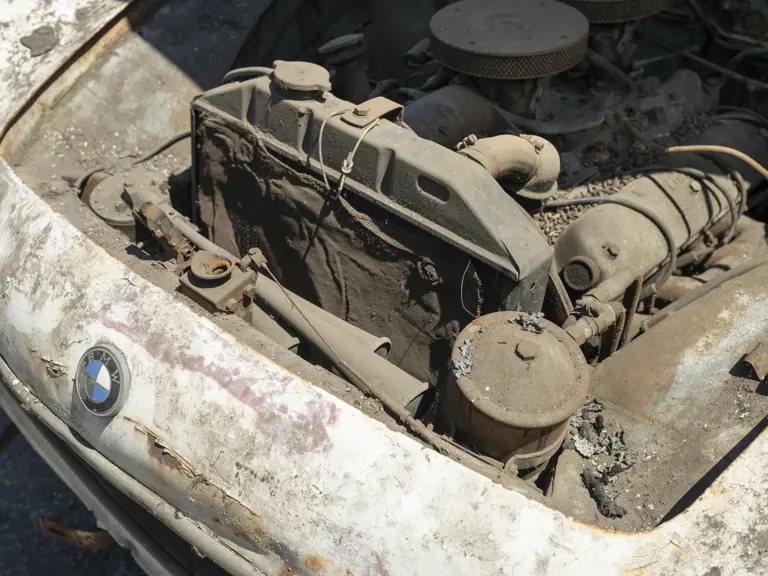
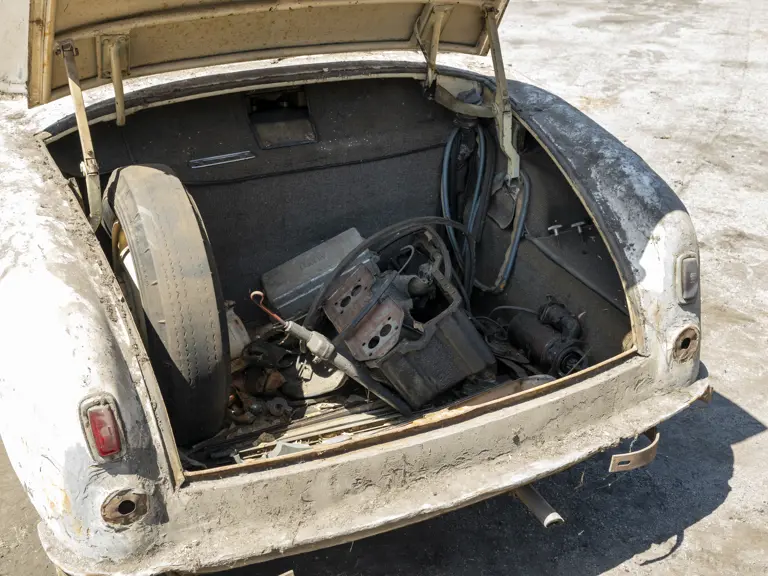
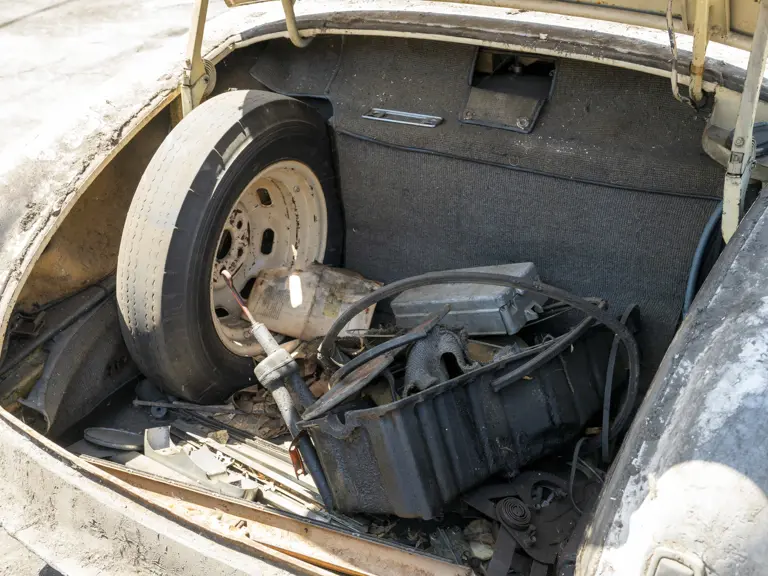
 | Los Angeles, California
| Los Angeles, California
